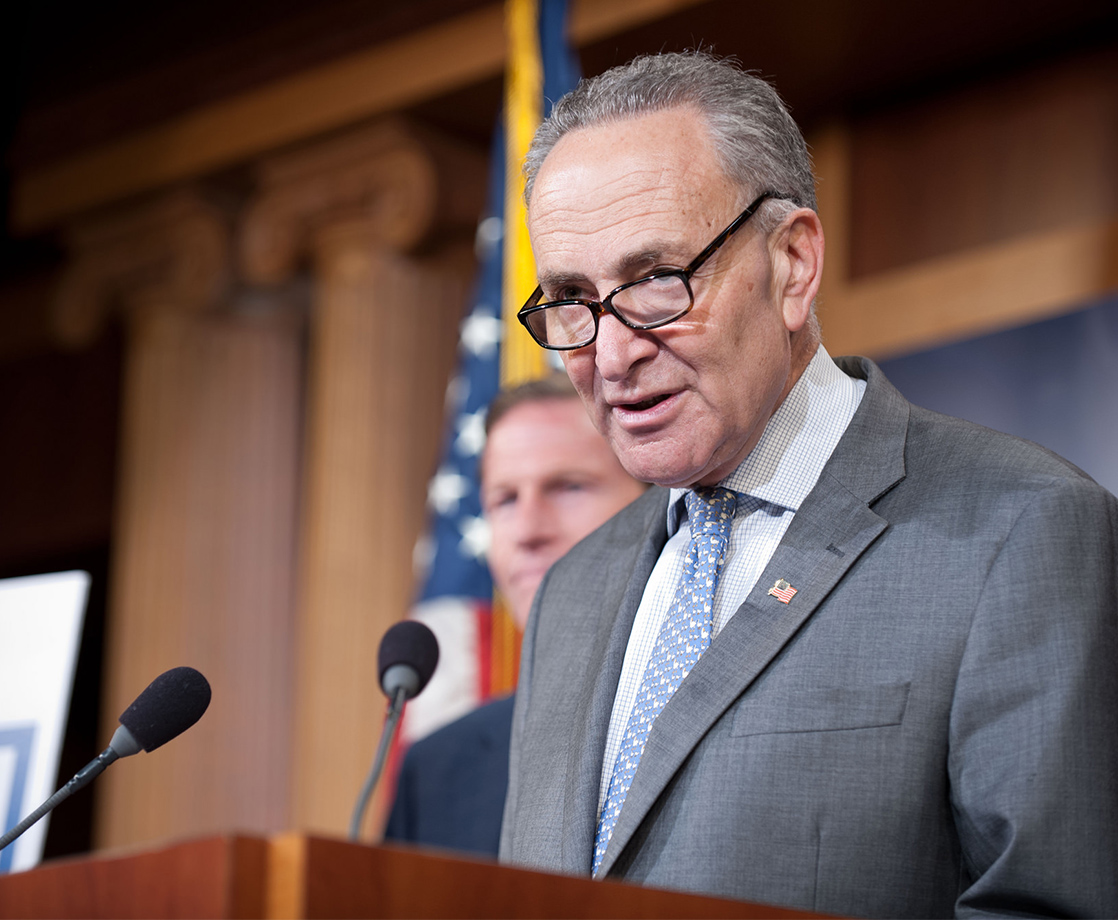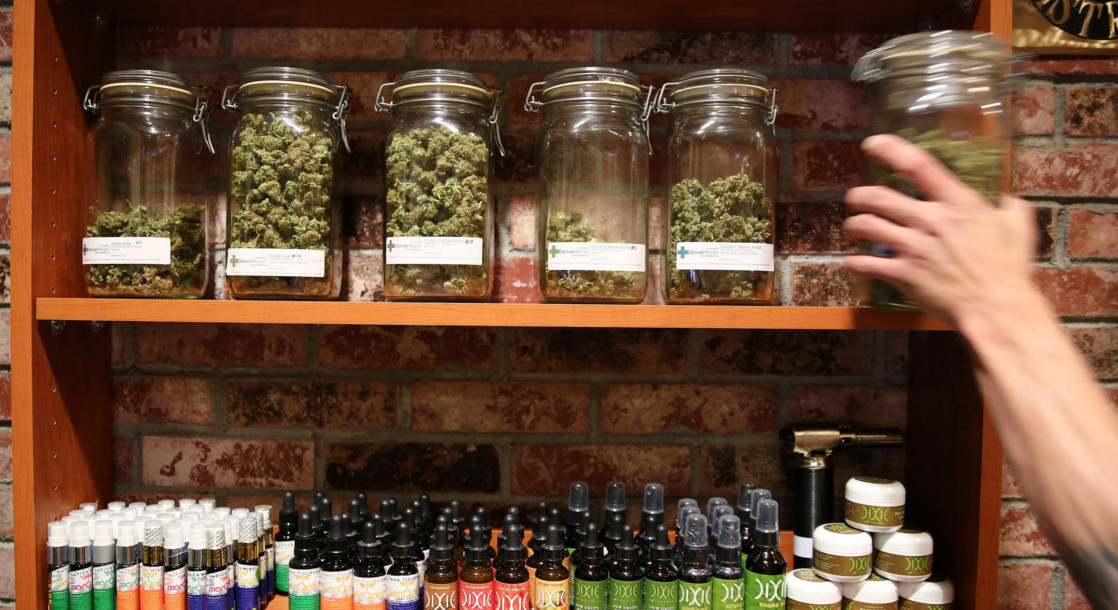Lead image via
In the midst of this year's 4/20 celebrations, Senate Minority Leader Chuck Schumer announced that after decades of championing the War on Drugs, he had finally realized that drug prohibition was a failure, and was planning to unveil a new cannabis decriminalization bill. This week, Schumer made good on that promise, unveiling the Marijuana Freedom and Opportunity Act alongside co-sponsors Senators Bernie Sanders, Tim Kaine, and Tammy Duckworth.
"The time to decriminalize marijuana is now," Schumer said in a statement. "The new Marijuana Freedom and Opportunity Act is about giving states the freedom to be the laboratories that they should be and giving Americans — especially women and minority business owners, as well as those convicted of simple possession of marijuana intended for personal use — the opportunity to succeed in today's economy. This legislation is simply the right thing to do and I am hopeful that the balanced approach it takes can earn bipartisan support in Congress and across the country."
This April, President Trump suggested that he would support legislation that protected individual states' rights to legalize cannabis. Shortly thereafter, Senators Cory Gardner and Elizabeth Warren announced the STATES Act, a bill that would remove cannabis from the Controlled Substances Act, protecting individual canna-legal states from federal interference. The bill was introduced in the Senate earlier this month, and simultaneously introduced into the House by pro-cannabis Reps. Earl Blumenauer and David Joyce.
The Marijuana Freedom and Opportunity Act would also remove cannabis from the Controlled Substances Act, effectively decriminalizing it federally. Like the STATES Act, this would allow any state that has legalized — or wishes to legalize — cannabis to do so without any risk of federal prosecution. The federal government would still be tasked with cracking down on black market weed smuggling from canna-legal states to states where the drug is still prohibited, though.
The bill also allows the Department of Treasury to set nationwide regulations on marijuana advertising, in order to ensure that cannabis products are not being advertised to children. The legislation would also address fears of stoned drivers by setting aside $250 million in funding to invest in highway safety research and means to reliably measure cannabis impairment on drivers. An additional $500 million would be set aside for medical research on cannabis, targeted at identifying risks of long-term use as well as further benefits of medical marijuana.
Schumer has also drafted initiatives to support "communities that have been disproportionately affected by our current marijuana laws." The bill would create grant programs to provide financial incentives to local and state governments that assist anyone convicted of minor cannabis offenses in expunging or sealing their records. Additional funding would be made available to the Small Business Administration to provide financial assistance to women- and minority-owned cannabis startups.
"This bill is a welcomed shift of policy from Democratic party leadership," NORML political director Justin Strekal said in a statement. "At a time when 68 percent of Americans support marijuana legalization, including outright majorities of Democrats (77 percent), Independents (62 percent), and Republicans (57 percent), it is time for ending federal prohibition to become a truly bipartisan issue."











